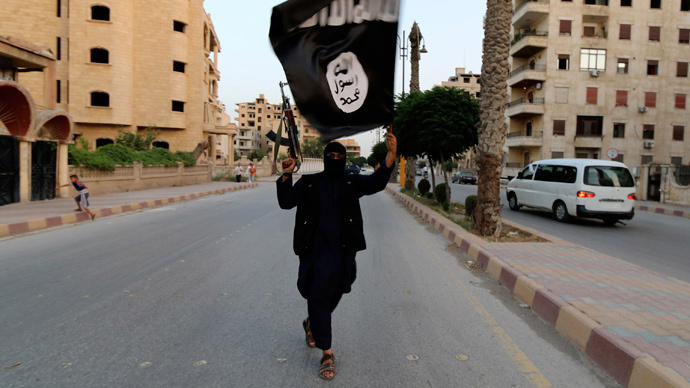66 journalists killed in 2014, murders ‘more barbaric’ – Reporters Without Borders

At least 66 journalists have been killed this year, says Reporters Without Borders, adding that the murders are becoming increasingly barbaric. Syria, Palestine, Ukraine, Iraq and Libya have been named the deadliest countries for reporters.
“The murders are becoming more and more barbaric and the number of abductions is growing rapidly, with those carrying them out seeking to prevent independent news coverage and deter scrutiny by the outside world,”says a newly released report by Reporters Without Borders (RWB).

The annual report includes data for professional and citizen journalists who were killed in connection with their reporting.
READ MORE: Islamic State militants behead missing American journalist
The report lists the five deadliest countries for journalists: Syria (15 deaths), Palestine (7), Ukraine (6), Iraq (4) and Libya (4). This year’s total brings the number of journalists killed over the last decade to 720.

According to the paper, the beheadings of US and Iraqi journalists by Islamic State militants in 2014 “testified to the scale of the violence that can be used against unwanted witnesses.”
READ MORE: Second American journalist beheaded by ISIS terrorists
“Rarely have reporters been murdered with such a barbaric sense of propaganda, shocking the entire world.”
Also, the watchdog says that a total of 119 journalists were kidnapped this year, “an increase of more than 30 percent on last year’s figure.” Forty journalists are currently being held hostage.

The report states that many journalists were also kidnapped in Ukraine, “mainly in the east of the country, where the conflict continued despite the ceasefire announced there in September.”
Conflict-torn Ukraine has become the worst country for journalists’ abductions, murders and attacks.

Detailing the five most dangerous areas for journalists, the report said that in the territory controlled by Islamic State (in Iraq and Syria) “journalists are closely monitored and often hunted down, kidnapped and killed.”
The ISIS-controlled countries are followed by eastern Libya, Balochistan province in Pakistan and Department of Antioquia (Colombia).
READ MORE:‘No chance to survive’: Rossiya TV journalists Kornelyuk and Voloshin killed in Ukraine shelling
The Donetsk and Lugansk regions of eastern Ukraine are also among the five top most dangerous places for journalists. RWB says that the “most exposed” are local journalists, who are “threatened, censored and liable to have their offices ransacked.”

READ MORE:Confirmed: Italian journalist killed in Eastern Ukraine
Ukraine tops the list of the countries where most of journalists were arrested this year (47). It was followed by Egypt (46), Iran and Nepal (both 45).
“In Ukraine, both government forces and separatist rebels operate checkpoints in combat zones at which journalists may be detained and taken away in a heavy-handed manner and then freed a few hours later without any explanation being given for their arrest.”
READ MORE:Cameraman for Russia's top broadcaster killed in E. Ukraine
All in all, at least 853 professional journalists were arrested in 2014 – a 3 percent increase on 2013.
“Arrests of journalists are obviously not such grave violations of freedom of information as murders or prolonged abduction, but they obstruct the media’s work and often constitute a form of intimidation, which is unacceptable.”












